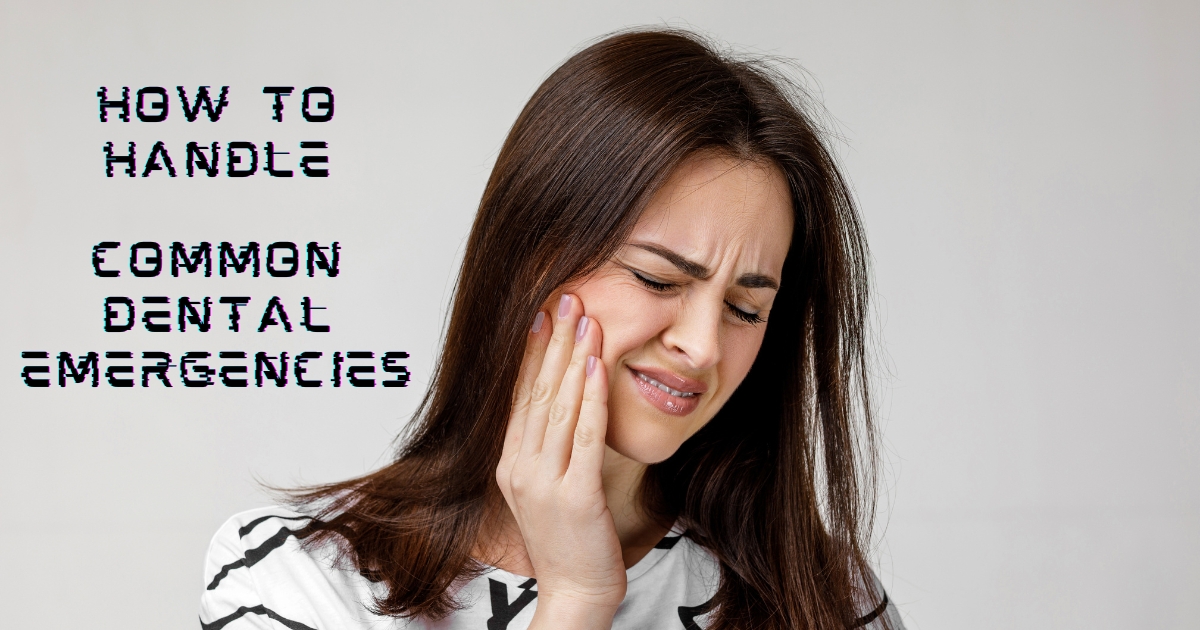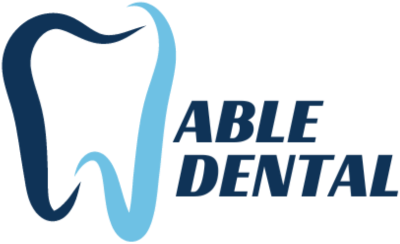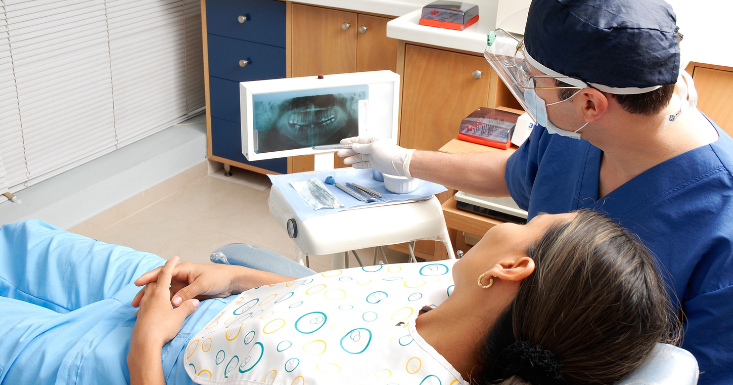
When a dental emergency strikes, it can feel like chaos has taken over your day. Knowing what to do can make all the difference, whether a sudden toothache or a knocked-out tooth. Preparing for these situations eases the panic and helps manage the issue more effectively.
Let’s dive into the five most common dental emergencies, so you’ll know exactly how to handle them when they arise.
Each situation requires quick, decisive action to minimize damage and discomfort, from severe toothaches to broken fillings. In this blog, we’ll walk you through each common emergency and provide practical steps to manage them before you can get professional help.
Understanding these emergencies and having a plan will keep you calm and collected when every second counts. Ready to become a dental emergency pro? Let’s get started!
1. Severe Toothache: Immediate Relief and Next Steps
Experiencing a severe toothache can be distressing. This intense pain often stems from cavities, infections, or trauma. Understanding the cause and managing the pain can ease the discomfort until you see a dentist.
- Causes: Cavities, cracked teeth, or gum infections are common culprits behind severe toothaches. These issues expose nerves or cause inflammation, leading to significant pain.
- Immediate Actions: To manage pain, use over-the-counter pain relievers like ibuprofen. Rinsing with warm salt water can help soothe the area. Avoid very hot or cold foods, as they might exacerbate the pain.
- When to Seek Help: If the pain is unbearable, persists for more than a day, or is accompanied by swelling or fever, it’s time to seek urgent dental care. These could be signs of a severe infection or other complications.
2. Knocked-Out Tooth: How to Handle It Right Away
A knocked-out tooth can be alarming, but quick action can save the tooth. Knowing how to handle the situation can greatly impact the outcome.
- Immediate Steps: Retrieve the tooth, holding it by the crown (not the root). If dirty, gently rinse it with water, but don’t scrub it. Place it back into the socket or store it in a milk or saline solution container.
- Treatment: Depending on the damage, your dentist will evaluate the tooth and may reattach it or use other restorative methods. Time is critical, so seek professional help immediately.
- Prevention Tips: To avoid such accidents, use a mouthguard during sports and avoid using teeth as tools.
3. Broken or Chipped Tooth: Managing the Damage
A broken or chipped tooth can be painful and unsightly. Quick first aid can help manage the damage and reduce discomfort until you see your emergency dentist in New Port Richey, FL.
- Assessment: Examine the tooth to determine the extent of the damage. Minor chips may not need immediate professional care, but more significant breaks often require treatment.
- First Aid: Rinse your mouth with warm water. Apply a cold compress to reduce swelling. Avoid chewing on the damaged tooth. If necessary, cover sharp edges with dental wax.
- Professional Care: Your dentist might use bonding, veneers, or crowns to restore the tooth. Prompt treatment can prevent further damage and improve the tooth’s appearance.
4. Lost Filling or Crown: Quick Fixes and Repair
Losing a filling or crown can be uncomfortable and inconvenient. Knowing how to handle it until your dental visit prevents further issues.
- Temporary Solutions: Use over-the-counter dental cement to cover the exposed area temporarily. Avoid sticky or hard foods that could aggravate the situation.
- Importance of Prompt Repair: Delayed treatment can lead to further decay or damage to the tooth. Seek dental care as soon as possible to replace the filling or crown.
- Prevention Tips: Maintain regular dental check-ups to ensure the security of fillings and crowns. Avoid habits like teeth grinding, which can dislodge restorations.
5. Gum Injury or Bleeding: Immediate Care and When to Seek Help
Gum injuries or bleeding can result from various causes, including trauma or infection. Proper first aid and timely professional care are essential.
- Common Causes: Gum injuries might occur from accidents, aggressive brushing, or gum disease. Infections can also lead to bleeding.
- First Aid: Apply gentle pressure with a clean cloth to control bleeding. Rinse with warm salt water to clean the area and reduce inflammation.
- When to Seek Professional Help: If bleeding doesn’t stop after 10 minutes, or if you experience severe pain or swelling, contact your emergency dentist in New Port Richey, FL. These could be signs of a serious underlying issue.
Additional Tips for Handling Dental Emergencies
Being prepared can make a significant difference during a dental emergency. Here’s how to stay ready and reduce the risk of complications.
- Creating a Dental Emergency Kit: Include essential items like gauze, over-the-counter pain relievers, dental cement, and a small container for tooth preservation. Keep the kit in an accessible place.
- Emergency Contact Information: Have your dentist’s contact information readily available. Knowing who to call can save valuable time in a crisis.
- General Prevention Tips: Regular dental visits, good oral hygiene, and wearing protective gear during sports can help reduce the likelihood of emergencies.
Dental emergencies can be alarming, but knowing how to handle them can make a difference. Understanding these common issues and taking immediate action can minimize damage and discomfort. Keep your emergency kit stocked and your dentist’s contact information handy. Remember, staying calm and prepared is key. Don’t hesitate to seek professional help for persistent issues or severe symptoms. Your smile will thank you!




